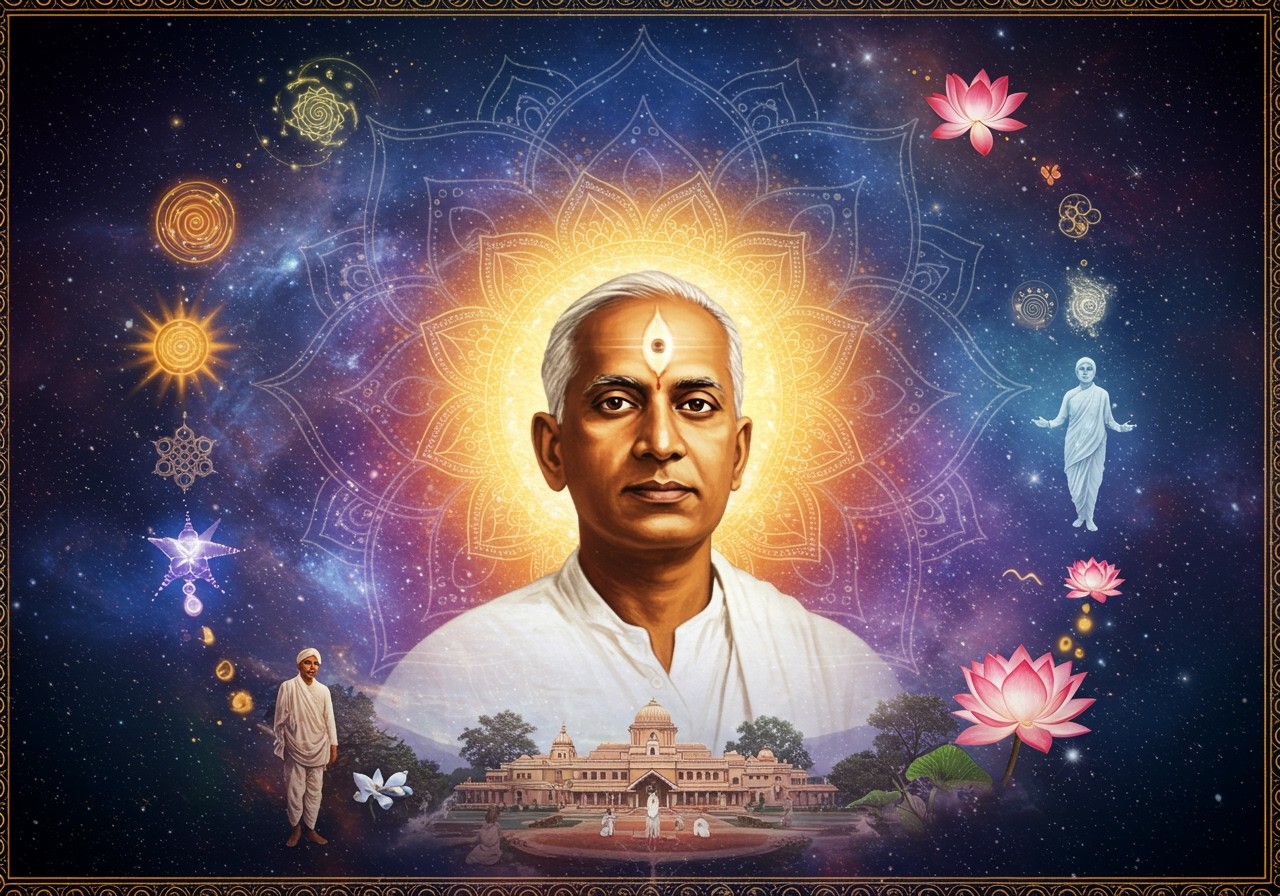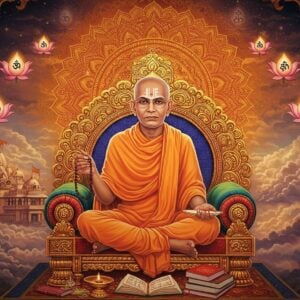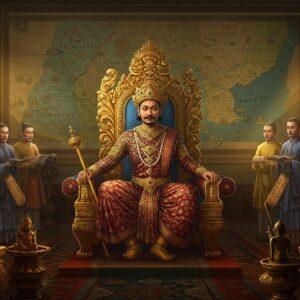
Sri Aurobindo, a name that resonates deeply within India’s spiritual and philosophical landscape, continues to inspire seekers even in 2025. Born in 1872, his life was a tapestry woven with threads of intellectual brilliance, fervent nationalism, and profound spiritual realization. This exploration delves into the life, teachings, and enduring legacy of this remarkable figure.
Early Life and Education (1872-1893)
Sri Aurobindo’s journey began in Calcutta, but at the tender age of seven, he embarked on a voyage to England for his education. Immersing himself in Western thought at St. Paul’s School, London, and later King’s College, Cambridge, he excelled in classics, laying a foundation for his future intellectual pursuits. This period nurtured his sharp intellect and exposed him to Western philosophical traditions.
Return to India and Nationalist Movement (1893-1910)
Returning to India in 1893, Sri Aurobindo entered the Baroda State Service. While navigating the complexities of administrative work and teaching at Baroda College, a deeper calling stirred within him – the call of his motherland. He became increasingly involved in the burgeoning Indian independence movement. His powerful writings and speeches ignited the flames of patriotism, advocating for complete Swaraj (self-rule) from British rule. This period saw him transition from a scholar to a passionate advocate for India’s freedom.
In 1906, Sri Aurobindo moved to Calcutta, becoming a pivotal figure in the Nationalist movement. Through his influential newspaper, Bande Mataram, he fearlessly championed the cause of complete independence, earning him both admiration and the ire of the British authorities. Despite facing multiple arrests for sedition, his commitment to his nation remained unshakeable.
Poojn.in is proud to offer a curated selection of books and writings by and about Sri Aurobindo, allowing you to delve deeper into his profound philosophy and spiritual insights. Explore our collection and bring the wisdom of Sri Aurobindo into your home. Discover Sri Aurobindo’s Works at Poojn.in.
The Spiritual Turn and Pondicherry (1910-1950)
A transformative experience awaited Sri Aurobindo during his imprisonment in Alipore Jail in 1908. A profound spiritual awakening shifted his focus from the political arena to the inner realm of spirituality. In 1910, he sought refuge in Pondicherry, then a French colony, to dedicate himself fully to his spiritual practice and the development of his unique system, Integral Yoga. He established the Sri Aurobindo Ashram, a spiritual community that continues to thrive today. This marked a crucial turning point in his life, shifting his focus from the outer world of politics to the inner world of spiritual exploration.
Integral Yoga: A Path to Transformation
At the heart of Sri Aurobindo’s teachings lies Integral Yoga. This transformative practice seeks to unite the individual with the Divine, fostering a harmonious integration of all aspects of life. Rooted in the ancient Indian wisdom of interconnectedness, Integral Yoga goes beyond physical postures. It encompasses the mind, emotions, and spirit, guiding practitioners toward a higher consciousness. This holistic approach makes it relevant for seekers from all walks of life.
Sri Aurobindo believed in the continuous evolution of consciousness, from matter to spirit. He envisioned humans as transitional beings, capable of transcending the limitations of the mind and reaching a supramental consciousness, a state of greater awareness and harmony. Learn more about the path of Bhakti Yoga.
The Sri Aurobindo Ashram: A Living Legacy
In 1926, together with Mirra Alfassa, known as The Mother, Sri Aurobindo established the Sri Aurobindo Ashram in Pondicherry. It became a sanctuary for spiritual seekers from across the globe, fostering a vibrant community dedicated to the practice of Integral Yoga. Explore the story of Sarvamangla and its connection to Hindu values.
Poojn.in provides a wide range of Pooja Samagri to support your spiritual journey, including items traditionally used in ashrams. From pure cotton meditation cushions and asanas to natural incense and brass lamps, we offer everything you need to create a sacred space for your practice.
FAQs on Sri Aurobindo
What is the significance of the Divine Mother in Sri Aurobindo’s teachings? The Divine Mother (Shakti) plays a central role in Integral Yoga. She represents the dynamic energy of the Divine, essential for transformation and the realization of higher consciousness. Opening to the Divine Mother’s grace is considered crucial for spiritual progress.
How can I learn more about Sri Aurobindo’s philosophy? Sri Aurobindo’s extensive writings provide a rich source of knowledge. “The Life Divine” and “Savitri” are among his most renowned works, offering deep insights into his philosophy and spiritual vision.
Sri Aurobindo’s Influence in 2025
Even today, Sri Aurobindo’s philosophy continues to resonate with seekers worldwide. His teachings offer a path towards self-realization and a more harmonious world, principles that hold deep relevance in the challenges of the 21st century. His vision of human potential and the possibility of a higher consciousness continues to inspire individuals and communities striving for positive change. Find clay items, clay diyas for Saraswati Puja, and sacred threads at Poojn.in.


